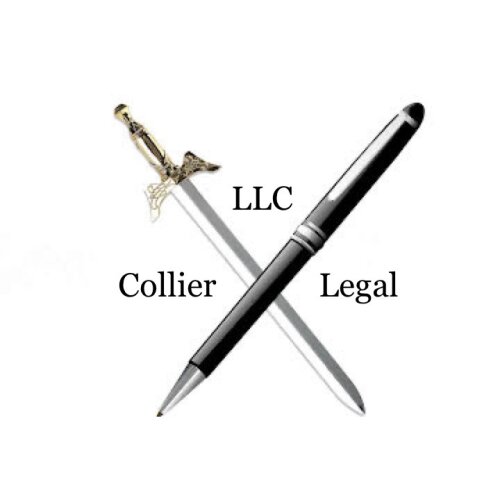Best Health Care Lawyers in Ohio
Share your needs with us, get contacted by law firms.
Free. Takes 2 min.
Or refine your search by selecting a city:
List of the best lawyers in Ohio, United States
About Health Care Law in Ohio, United States
Health care law in Ohio covers the broad spectrum of statutes, regulations, and case law that defines the delivery and oversight of medical services within the state. This field addresses the rights and responsibilities of patients, health care providers, hospitals, and insurers. Key areas include patient privacy, access to care, insurance regulations, medical malpractice, and consent to treatment. Ohio health care law also navigates the relationship between state and federal rules, particularly around publicly funded programs like Medicaid and Medicare, as well as compliance with federal standards like the Health Insurance Portability and Accountability Act (HIPAA).
Why You May Need a Lawyer
There are many situations where citizens and professionals dealing with health care in Ohio may require legal support. Some common circumstances include:
- Experiencing or suspecting medical malpractice or negligence during treatment.
- Facing denial of essential health care services or insurance coverage.
- Disputing medical bills or charges with providers or insurers.
- Needing representation for nursing home abuse or elder care law issues.
- Managing informed consent, end-of-life planning, or legal documents like advance directives.
- Health care professionals facing disciplinary action or licensing issues.
- Questions about the privacy of medical records or accusations of violating patient confidentiality.
- Seeking guidance in health care business law, such as physician contracts or health facility compliance.
- Addressing discrimination in access to health care services.
- Navigating government benefit eligibility, especially Medicaid or Medicare disputes.
A lawyer with experience in health care law can provide tailored advice, protect your rights, and navigate complex government and insurance systems.
Local Laws Overview
Ohio’s health care laws are shaped by both state and federal regulations. Here are several key aspects:
- Medical Malpractice: Ohio has specific statutes regarding timelines (statute of limitations), what constitutes actionable negligence, and caps on certain damages.
- Patient Privacy: Ohio adheres to federal HIPAA guidelines and also requires health care providers to safeguard patient records under state law.
- Informed Consent: Medical providers in Ohio are legally required to provide adequate information for patients to make informed decisions about their care.
- Advance Directives: Ohio law recognizes living wills and health care powers of attorney, giving individuals the ability to set out health care instructions in advance.
- Insurance Requirements: Ohio regulates insurance providers, including rules for Medicaid eligibility, requirements for coverage, and procedures for handling disputes.
- Licensing and Regulation: The State Medical Board of Ohio and similar agencies oversee professional licensing for physicians, nurses, and other providers, as well as disciplinary action.
- Nursing Home and Elder Care: Ohio has laws addressing long-term care quality, abuse prevention, and resident rights, supplemented by both state and federal oversight for facilities accepting Medicaid or Medicare.
- Patient Bill of Rights: Hospitals and nursing facilities must inform patients of their rights, encompassing privacy, informed consent, and the ability to file complaints.
- Mandatory Reporting: Certain injuries or conditions must be reported to health authorities, and there are protections for whistleblowers in cases of abuse or neglect.
Frequently Asked Questions
What is medical malpractice, and how do I know if I have a claim?
Medical malpractice occurs when a health care provider’s negligence leads to injury or harm. Ohio law requires you to prove that the provider failed to meet the standard of care and that this caused your injury. Consulting a lawyer can help you determine if you have a claim.
How long do I have to file a medical malpractice lawsuit in Ohio?
Generally, the statute of limitations is one year from the date you discovered or should have discovered the injury, with some exceptions. Consult a lawyer promptly to avoid losing your right to sue.
What are my rights regarding access to my medical records in Ohio?
Both Ohio and federal law give you the right to access your health records. Providers may charge a reasonable fee for copies, but they must provide access upon request within a set timeframe.
What should I do if my health insurance denies a claim for medically necessary treatment?
Start by reviewing your denial letter and your insurance policy. You have the right to appeal within your insurer’s outlined appeal process. An attorney can help you understand your rights and file an effective appeal.
Can I switch doctors or hospitals at any time?
Yes, as a patient in Ohio, you generally have the right to select your health care providers and transfer your care, though certain insurance or treatment programs may have restrictions.
How do I create an advance directive or living will in Ohio?
Ohio law provides forms for creating advance directives such as living wills and health care powers of attorney. These must be signed and witnessed or notarized. Attorneys often assist to ensure these documents are properly completed and valid.
What are my rights in a nursing home or long-term care facility?
Residents have rights to dignified treatment, participation in care decisions, privacy, and the right to voice grievances. Ohio’s Long-Term Care Ombudsman can assist with complaints, and legal action may be necessary in severe cases.
What penalties can providers face for violating health care regulations in Ohio?
Penalties range from fines, restitution, and civil damages to criminal charges and loss of professional licensure, depending on the severity and nature of the violation.
How does the Ohio law address discrimination in health care?
Ohio and federal law prohibit discrimination in the provision of health care based on race, color, national origin, sex, disability, or age. Complaints can be filed with relevant agencies, and legal remedies may be available.
Where can I turn if I suspect elder abuse or neglect in a health care setting?
Contact local Adult Protective Services or law enforcement. Ohio law mandates reporting suspected abuse, neglect, or exploitation, and legal help may be necessary to protect the rights of the vulnerable adult.
Additional Resources
For individuals seeking information or assistance regarding health care law in Ohio, these resources can provide valuable support:
- Ohio Department of Health
- Ohio Department of Insurance
- Ohio Department of Medicaid
- State Medical Board of Ohio
- Ohio Long-Term Care Ombudsman Program
- Legal Aid Societies (such as Ohio Legal Help and Legal Aid Society of Greater Cincinnati)
- Centers for Medicare and Medicaid Services
- Ohio State Bar Association
Next Steps
If you need legal assistance related to health care in Ohio, start by identifying the exact nature of your concern. Gather all relevant documents, such as medical records, insurance communications, and written correspondence. Consider contacting a local attorney who focuses on health care law or patient rights, as they can offer a consultation and guide you through your options. You may also reach out to legal aid providers or community organizations if cost is a concern. Acting quickly can help preserve your rights and ensure the best possible outcome.
Lawzana helps you find the best lawyers and law firms in Ohio through a curated and pre-screened list of qualified legal professionals. Our platform offers rankings and detailed profiles of attorneys and law firms, allowing you to compare based on practice areas, including Health Care, experience, and client feedback.
Each profile includes a description of the firm's areas of practice, client reviews, team members and partners, year of establishment, spoken languages, office locations, contact information, social media presence, and any published articles or resources. Most firms on our platform speak English and are experienced in both local and international legal matters.
Get a quote from top-rated law firms in Ohio, United States — quickly, securely, and without unnecessary hassle.
Disclaimer:
The information provided on this page is for general informational purposes only and does not constitute legal advice. While we strive to ensure the accuracy and relevance of the content, legal information may change over time, and interpretations of the law can vary. You should always consult with a qualified legal professional for advice specific to your situation.
We disclaim all liability for actions taken or not taken based on the content of this page. If you believe any information is incorrect or outdated, please contact us, and we will review and update it where appropriate.
Browse health care law firms by city in Ohio
Refine your search by selecting a city.










